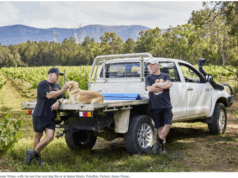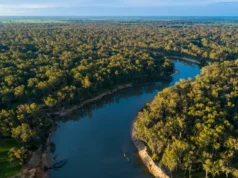From refugee to billionaire, how Manny Stul built a global empire
photo credit: Nick Cubbin
Make them bright. Give them a name, a face and a grin. Give them a soul. A moulded blob of plastic broccoli with two eyes and a smiley mouth. A milkshake cup with heart-shaped lips. A pizza base with a tomato paste quiff. When is a frying pan not a frying pan? When it’s a one-inch-tall Shopkin, the tiny, anthropomorphic, collectable toy sensation that has propelled a Melbourne family-run toy company to phenomenal heights. With more than 900 million Shopkins finding their way into children’s bedrooms in more than 100 countries, it’s all there in the tagline: Once you shop … you can’t stop!
Manny Stul was going to stop. He really shouldn’t be here, sitting at a desk at Moose Toys next to Bagel Billy, Cindy Bon and Edgar Eggcup, presiding over one of the most successful and extraordinary Australian companies you’ve never heard of. He shouldn’t have seen Moose survive what happened 10 years ago. No toy company should survive a crisis where the words “children” and “date-rape drug” are used in the same sentence. At 68 he shouldn’t be gliding across the floor without making a sound; shouldn’t move light as air, with sportsman’s grace and businessman’s intent. A family-run Melbourne business doesn’t crack the United States, the world’s biggest toy market. The concept is absurd.
Moose Toys finished 2016 as the fifth-biggest toy manufacturer in both Australia and the US, behind Lego, Mattel, Hasbro and Spin Master, having sold more than half a billion dollars worth of toys in that financial year. Shopkins was the top-ranked toy in the US in 2015, both in terms of units sold and monetary value, beating Barbie, Lego and My Little Pony. It won US Girls’ Toy of the Year in 2015 and 2016. Since Stul took over in 2000 he’s grown the business by 8500 per cent with no shareholder pressure and no borrowings. Last year he became the first Australian to win the Ernst & Young World Entrepreneur of the Year award, beating nominees from 55 other countries.
He wanted to win. He’s competitive but hates the limelight; doesn’t like talking about himself or his extraordinary life. He was born in a refugee camp in Germany, to parents who had suffered unspeakable tragedy. Now the boy who started life with nothing is one of the richest people in Australia, debuting on the Forbes Rich List this year with an estimated worth of $1.42 billion. It’s a list he says he wants no part of and a figure that makes him laugh.
But if Stul’s actual wealth is the elephant in the room it’s certainly a gentle beast. He used his speech at the Entrepreneur of the Year awards to call upon business leaders and those with money to give back to those less fortunate. He gives 10 per cent of his money to charity through the Moose Foundation and via substantial personal donations (always anonymously), making him one of Australia’s biggest philanthropists. He arrived at the 10 per cent figure through the teachings of the recurring guiding forces in his life: the ones he calls the enlightened, or spiritual masters. “It’s of greater benefit to give anonymously, for your own spiritual growth,” he says. “Once you have your name up in lights your ego gets involved. If you do something good but you’re doing it for your own feeling of importance, you’re in what’s called a golden cage.” His hero is Andrew Carnegie, the 19th-century US steel baron and one of the richest men in history, who gave away nearly all his money to charity. “He was very righteous in his belief that if you were smart enough to make all this money you had a moral obligation to distribute it back to the people. You’re a caretaker.”



